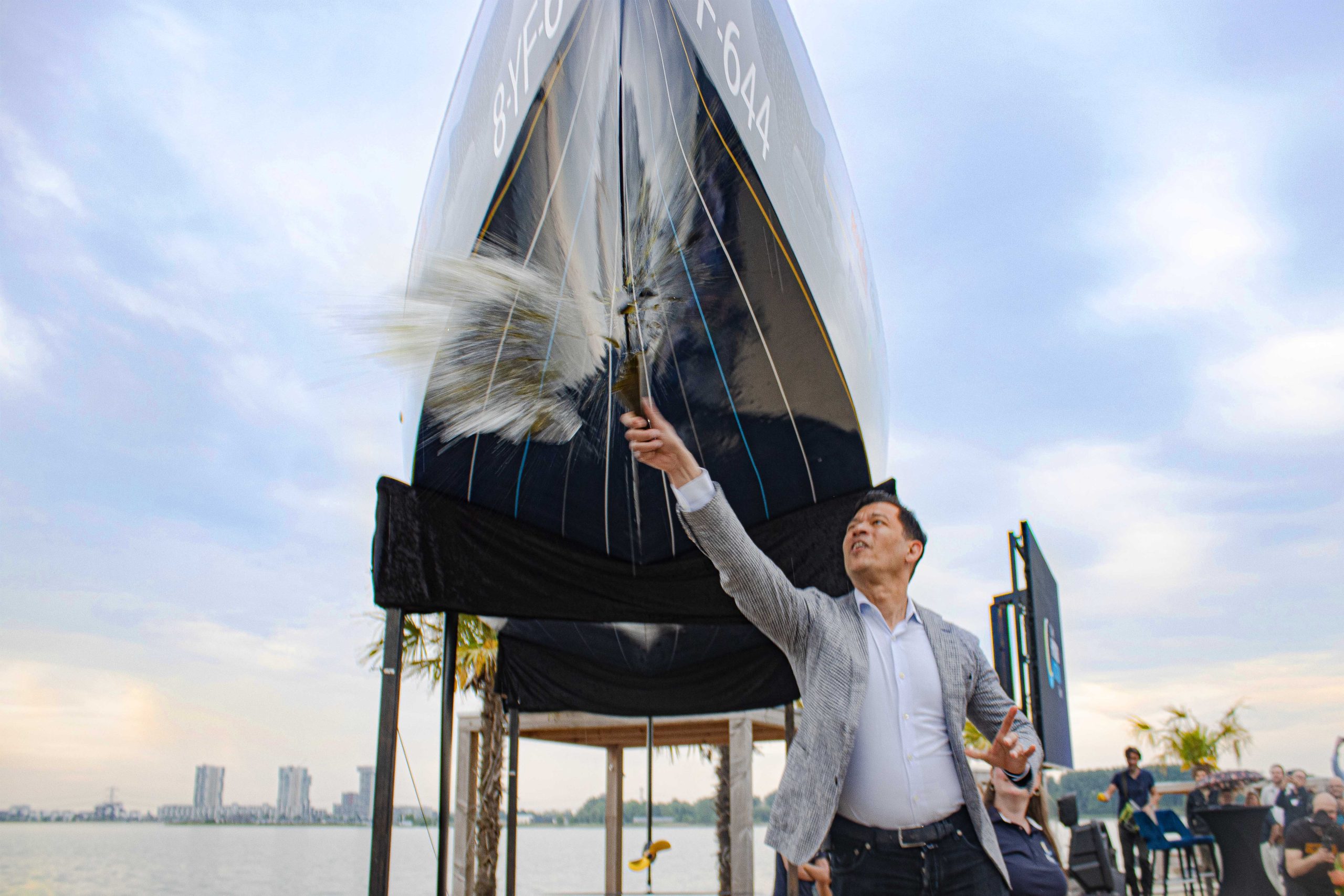Cleaner boating really is possible. This year, the TU Delft Hydromotion team designed and built a hydrogen-powered foiling boat whose only exhaust emission is water.
Parliament Member and TU-alumnus Raoul Boucke baptises the Delft hydrogen boat near Zevenhuizen. (Photo: Hydromotion Team)
TU alumnus and member of the Lower House Raoul Boucke (D66) was allowed to christen the newest Hydro Motion monohull. This took place on Monday 23 May at the Zevenbergse Plas. With this hydrogen-powered boat, the student team aims to win the world championship for emission-free boats this summer in Monaco.
Last year was the first time the maritime Solar Boat Dream Team’s boat was powered by hydrogen. The team then renamed itself the Hydromotion Team. The 2019 hydrofoiling solar trimaran was the starting point. The solar panels were removed and hydrogen tanks and a fuel cell installed on board. This made the team the first to showcase a hydrogen boat on hydrofoils at the 2021 Solar & Energy Boat Challenge in Monaco.
This time the boat was specially designed for hydrogen propulsion. “We do not need the trimaran to have a large deck for solar panels anymore,” says Mechanical Engineering student Suzet Giltay. She is responsible for the hydrofoil’s propulsion and height control. “We then chose a single hull, a mono hull, measuring seven metres long and two and a half metres wide.”
The boat weighs about 1,300 kilograms and, according to calculations, will rise out of the water at 25 kilometres per hour. Once on the hydrofoils, the boat is expected to reach a cruising speed of 40 kilometres per hour, with a top speed of 50 kilometres per hour. The hydrogen powerhouse delivers 30 kilowatts of continuous power with a peak of 68 kilowatts (90 hp).
‘If we can do it, the maritime industry can do it too’
Sustainability has been a key driver since the first solar boat in 2014. The switch to hydrogen has increased the use of renewable energy in shipping. “If we are able to show that we can build a flying hydrogen boat within a year, the maritime industry can do it too,” says Team Manager Sophie van ‘t Hoff.
In the coming days, the team will carry out test runs near the Biesbosch in preparation for the Monaco Energy Boat Challenge 2022 between 4 and 10 July. There, the TU Delft team will compete in the Open Sea Class alongside commercial boat builders demonstrating their zero-emission vessels that are already, or soon will be, on the market. Like last year, the TU Delft entry will probably be the most experimental boat in the class.
- Want to know more? Check hydromotionteam.nl
Do you have a question or comment about this article?
j.w.wassink@tudelft.nl


Comments are closed.